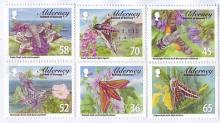On average, organic farms support 34% more plant, insect and animal species than conventional farms, say Oxford University scientists
Researchers looked at data going back thirty years and found that this effect has remained stable over time and shows no signs of decreasing. ‘Our study has shown that organic farming, as an alternative to conventional farming, can yield significant long-term benefits for biodiversity,’ said Sean Tuck of Oxford University’s Department of Plant Sciences, lead author of the study. ‘Organic methods could go some way towards halting the continued loss of diversity in industrialised nations.’ For pollinators such as bees, the number of different species was 50% higher on organic farms, although it is important to note that the study only looked at ‘species richness’. ‘Species richness tells us how many different species there are but does not say anything about the total number of organisms,’ said Mr Tuck. ‘There are many ways to study biodiversity and species richness is easy to measure, providing a useful starting point. Broadly speaking, high species richness usually indicates a variety of species with different functions. Taking the example of bees, species richness would tell us how many different species of bee were on each farm but not the total number of bees.’










